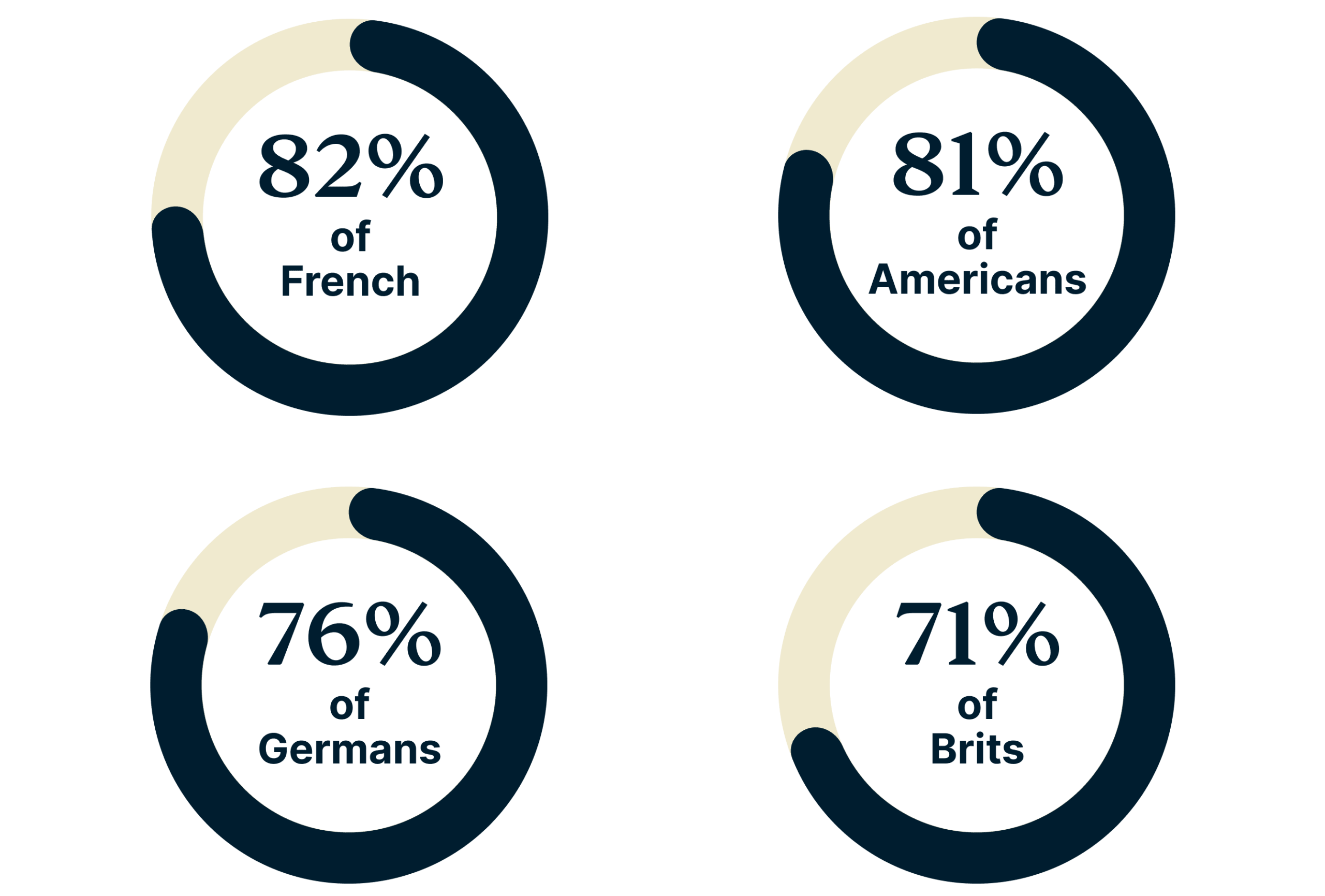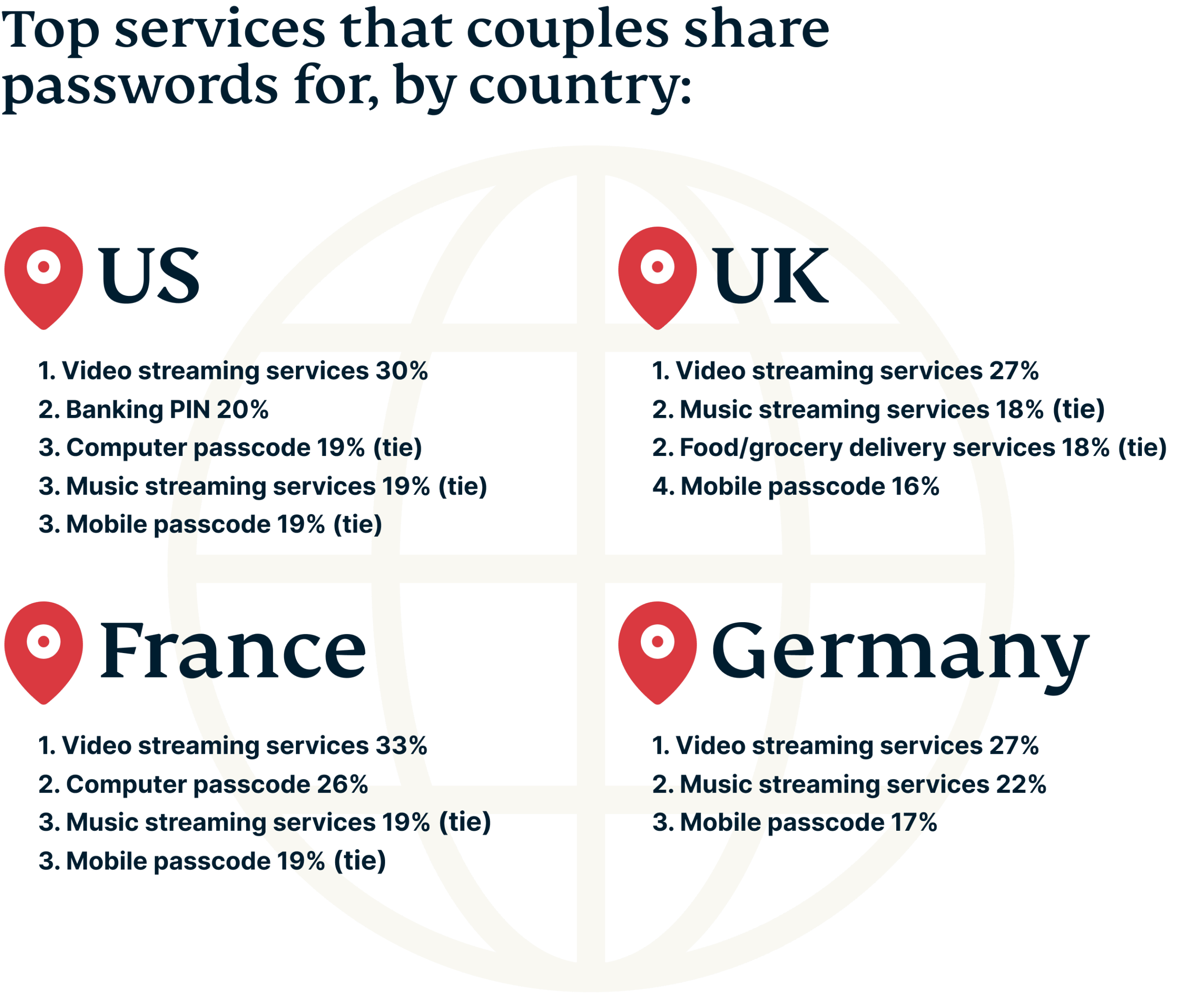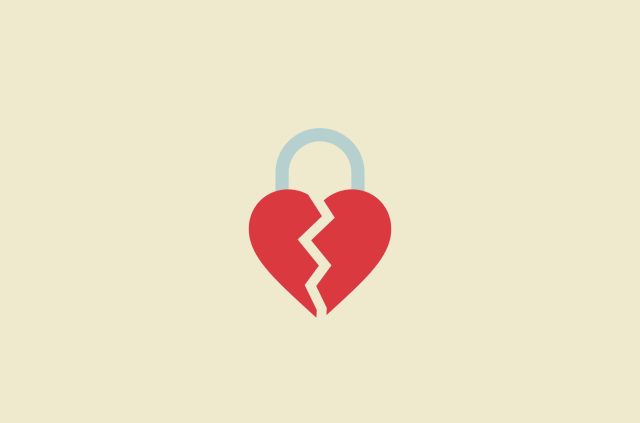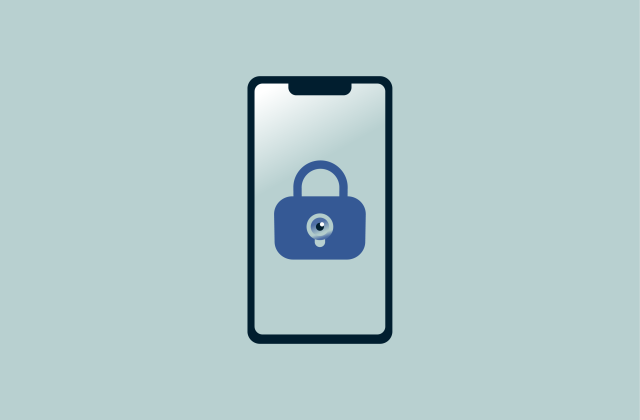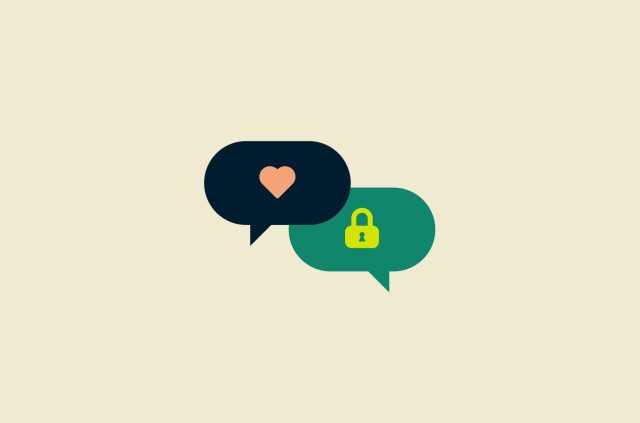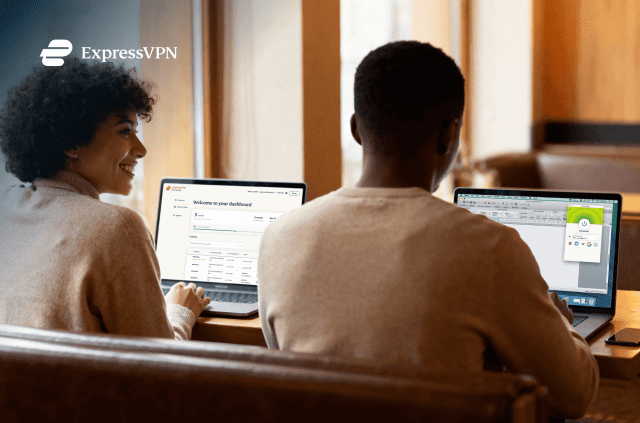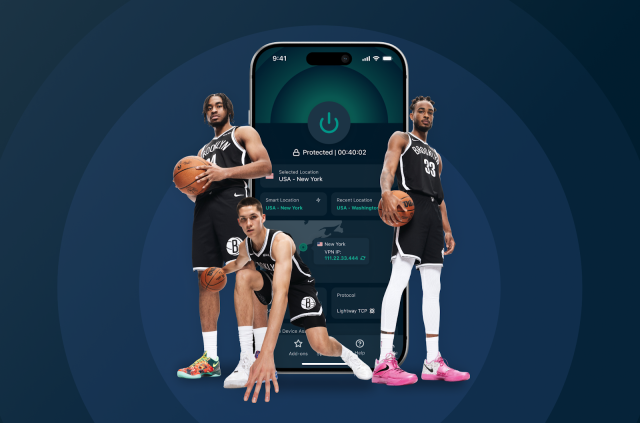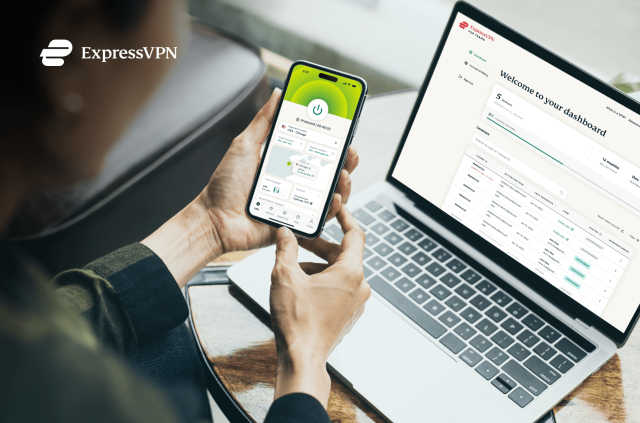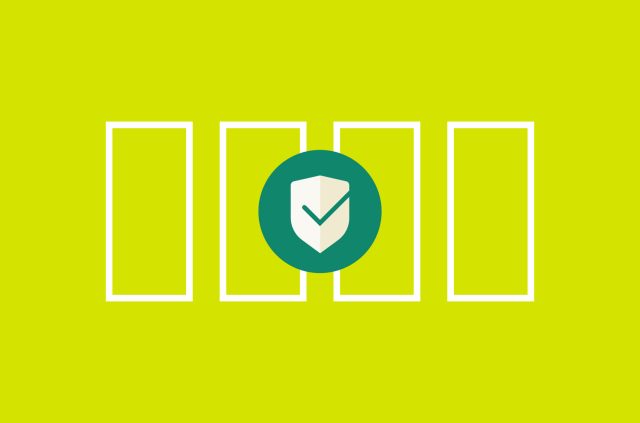We asked couples in 4 countries about password sharing

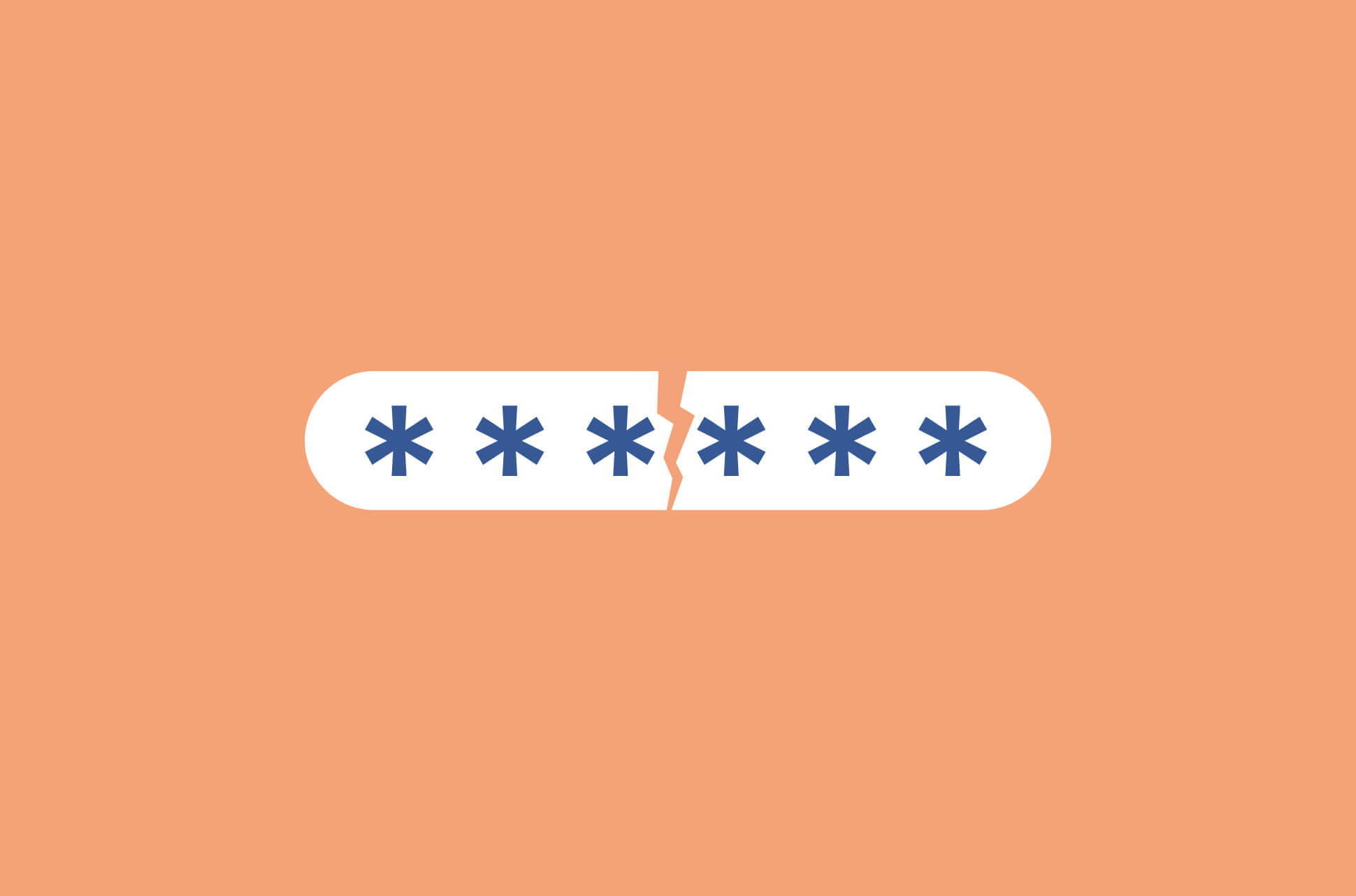
To explore the information people are putting at risk by sharing passwords with their partners and their attitudes about the practice, ExpressVPN surveyed men and women in relationships across the US, UK, France, and Germany.
For extensive country-by-country results, check out the links below.
More than three-quarters of couples share passwords
We all know the risks of sharing our login details for accounts with other people. Doing so gives the other person full access to the account, and they could even change your password and take over your account. That’s not to mention the risk that they’ll tell others your password.
But this rule certainly doesn’t seem to apply between people in a romantic relationship. In our survey of people in four countries, Germans professed the highest rate of password sharing, at 82%. The lowest were among the Brits, 71% of whom have shared a password with a partner.
Percentage of people who admit to sharing passwords with their significant other:
The reasons for sharing passwords vary, but Americans (44%), Brits (46%), and Germans (45%) primarily do so to save money, while the French (42%) are more likely to exchange passwords to demonstrate transparency in a relationship.
As for the services people tend to share passwords for, in all four countries the top category is video streaming services like Netflix. Most shockingly, in the US the second-most shared passwords are banking PINs.
Are you rushing into things?
To consider if your relationship is moving too fast (or slow), consider passwords. Most couples seem to share them with each other from around three to 12 months of dating. Americans showed a surprising result with 35% of people saying they do so after marriage. That’s high, when compared with 7% and 8% in France and Germany, respectively.
When do couples share passwords?
| Duration of relationship | US | UK | France | Germany |
|---|---|---|---|---|
| <1 month of dating | 9% | 6% | 18% | 13% |
| 1-3 months of dating | 13% | 10% | 18% | 18% |
| 3-6 months of dating | 12% | 15% | 17% | 18% |
| 6-12 months of dating | 11% | 18% | 15% | 18% |
| 1-2 years of dating | 10% | 18% | 12% | 13% |
| 2-4 years of dating | 5% | 9% | 5% | 6% |
| 4+ years of dating | 6% | 7% | 7% | 8% |
| After marriage | 35% | 17% | 7% | 8% |
Location tracking is universally common
Sharing your location with your partner might seem relatively invasive, but the practice is quite common, with Americans (50%), the French (50%), Germans (44%), and Brits (44%) admitting to using location sharing to track their significant other.
Why do you use location sharing to track partners?
| Reason | US | UK | France | Germany |
| Ensure their physical safety | 29% | 28% | 21% | 19% |
| Track their whereabouts | 14% | 12% | 17% | 13% |
| Ensure fidelity | 11% | 6% | 16% | 11% |
| Check their truthfulness | 9% | 7% | 7% | 8% |
| Test trustworthiness | 8% | 5% | 8% | 8% |
While in most cases, the partner being tracked knows it is happening, 20% of French and German users have turned on location sharing without someone’s knowledge, followed by 19% of Americans and 14% of Brits.
When your ex is still using your Netflix password
Breaking up is never easy, but walking away from their Netflix account might be just as difficult.
Twenty-two percent of French respondents admit to using an ex’s login information for various accounts even though they have broken up, followed by Germans (21%), Americans (18%), and Brits (14%). The most accessed account by exes is the same across the globe: Netflix.
With so many admitting to using an ex’s login, it’s not a surprise that many regret sharing their password with their romantic partner.
Have you regretted sharing passwords with a partner?
| Germany | France | US | UK | |
| Yes, during the relationship | 16% | 15% | 15% | 10% |
| Yes, after a breakup | 17% | 15% | 12% | 11% |
Protecting your accounts after a breakup
The best way to sever digital ties after the end of a relationship is to change your passwords immediately. However, this practice is not as common as it should be. While the French lead the way in terms of password hygiene, with 32% changing their passwords, only 26% of Americans and less than a quarter of Germans (23%) and Brits (22%) do so.
Read the full reports for each country:
US
UK
France
Germany
Take the first step to protect yourself online. Try ExpressVPN risk-free.
Get ExpressVPN